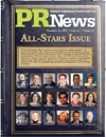




Indianapolis Fire Department -- Real-World Tests
After a fatal home fire in Indiana, Boston Fire Department’s Chief Jay Fleming
conducted live fire tests with the Indiana Fire Department to show the ‘Deadly Delay’
with ionization smoke alarms. The World Fire Safety Foundation’s ‘Aquarium Test’
and full scale tests, conducted in accordance with the IAFC’s 1980 Report were aired
on Indiana state TV by WTHR’s investigative journalist, Bob Segall.
Roger Johnson, Indiana State Fire Marshall warned:
"We have to sound our alarm now because the problem is, throughout Indiana
and throughout the nation, people have this false sense of security right now
with smoke detectors. I don't mean to scare people but I think we have five
million smoke detectors in this state that are ionization smoke detectors that
may fail in the time of need."
UL - Under the Microscope
Underwriters Laboratories Inc. (UL) is the world’s largest, independent product safety
testing and certification organization. Their seal of safety, the UL Mark, has been on
ionization smoke alarms for over thirty years. Bob Segall interviewed UL’s Consumer
Affairs Manager Mr John Drengenberg:
Drengenberg: “The fact is we know if it's a working smoke alarm, when the
smoke hits that alarm, it will sound.”
Segall: “Is there any scientific explanation for why, in this real world
situation, we have smoke detectors that are not going off in
a room full of smoke?”
Drengenberg: “I really don’t know.”
Texas A&M University -- Scientific Tests
Mr Drengenberg claimed the tests conducted by WTHR and Indiana fire departments
were not scientific so WTHR filmed ionization alarms undergoing tests in strict scientific
conditions performed by Dr Don B. Russell of Texas A&M University.
After the tests, Dr Russell stated:


![Dr B. Don Russell
“After an hour, we had 50%
of the [ionization] smoke
detectors not sounding.”](deadlydelay_files/shapeimage_6.png)


Indiana State Fire Marshal - Roger Johnson
“This may well be the most
vital life-safety issue of our time.”

Indiana’s SFM, Roger Johnson after an ‘Aquarium Test’
and full-scale tests were performed by the Indianapolis Fire
Department, September 2007, Indianapolis, Indiana, USA
Deadly Delay
April, 2007 ~

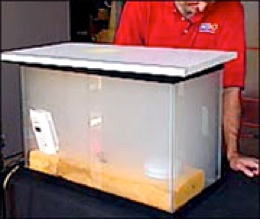
WTHR’s award-winning investigative reporter, Bob Segall, performing the World Fire Safety Foundation’s ‘Aquarium Test’.
Real-World Testing
Firefighters installing smoke
alarms for the full-scale tests


Chief Jay Fleming
“There is very little chance you
are going to be able to get out...”
-
- - - - - - - - - - More Evidence - - - - - - - - - -
-
-
-
-See Tennessee’s News Channel 5, TV series -- ‘An Alarming Failure’
-
-Watch: ‘The Corporation’
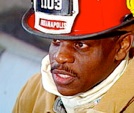
Greg Harris
“I was quite shocked, when you
see something like this first
hand it opens up your eyes.”




"After an hour, we had fifty percent of the smoke detectors, ionization
smoke detectors, not sounding. You saw it, I saw it, our eyes didn't lie.
The smoke was there, it was scientifically measured on both side of the
smoke detectors. It's clearly thick and those smoke detectors were not
going off. I call that a big problem . . .
Their (UL’s) science isn’t any good....”"
Dr B. Don Russell, Texas A&M University, (emphasis added)
Indiana’s WTHR -- ‘Deadly Delay’ TV series:
See: Part 1: "Nobody Knows About This”
See: Part 2: "I've Never Seen A Test Like This”
See: Part 3: New Testing Prompts New Call for Action
See: Part 4: Ionization Smoke Detector Fails ‘Aquarium Test’
See: Part 5: UL Must Improve Smoke Detector Testing
See: Indiana’s New Smoke Alarm Policy
See: Small Town Tragedy Offers Nationwide Lesson
See: ‘Deadly Delay’ Investigation Prompts Congressional Action
Visit: Indiana’s, WTHR TV entire ‘Deadly Delay’ TV series online

JOHN DRENGENBERG*

“I REALLY DON’T KNOW!”

*UL’s Consumer Affairs Manager, and
‘PR News’ ‘Spokesperson of the Year’ (2007)










“Every single family in America, if they have a
a smoke detector in their house, they’re
affected by this.
The proof showed that sometimes the ionization
detectors would’t even go off at all, and yet they
continue to manufacture them, continue to sell
them, continue to stand by them.”
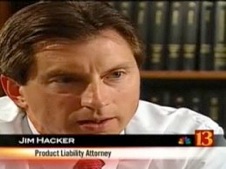
Jim Hacker, Hacker & Murphy LLP

Jim Hacker, Hacker Murphy LLP,
from WTHR’s ‘Deadly Delay’ TV series
warning Americans about ionization smoke
alarms during ‘Deadly Delay’ investigation

Bob Segall - 13 Investigates - Chief Investigative Reporter
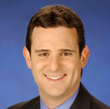
Bob Segall

Broadcasting & Cable magazine reported WTHR may have found the "best investigative reporter in America" after his first two investigative projects in Indianapolis were awarded a prestigious Peabody Award. (B&C 4/9/07)
In 2007, Deadly Delay exposed what Indiana's State Fire Marshal called "the most important life-safety issue the fire service will face in our lifetime." The 12-part investigation revealed hundreds of millions of smoke alarms in American homes may not activate during the most deadly type of house fire, resulting in needless deaths nationwide. With the help of university researchers and five separate fire departments, WTHR conducted a 4-month series of tests that disputed the findings of the nation's foremost fire testing agencies and prompted fire departments around Indiana and the United States to change their policies and recommendations regarding smoke alarms.
Using WTHR's investigation as evidence on Capitol Hill, Rep. Baron Hill and other members of Congress passed legislation requiring the Consumer Product Safety Commission to better educate Americans about the life-threatening differences between various types of smoke alarms.
Investigative Reporter

(c) Copyright 2012 The World Fire Safety Foundation | Last Updated: 07 Jan, 2012 | Privacy Policy | Disclaimer | Search WFSF site
For errors on, or suggestions for this ‘deadlydelay’ webpage, contact the WFSF WebMaster | Supporters | About | Media
